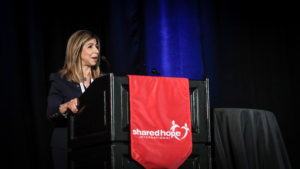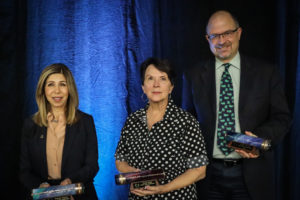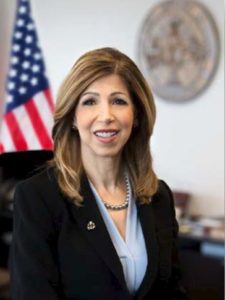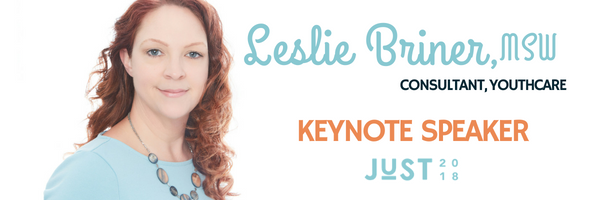Around 1,080 professionals, advocates and leaders in the anti-trafficking field joined us this year at the 2018 JuST Conference, October 16-18 in San Diego, CA.

San Diego County District Attorney Summer Stephan gave us a warm welcome to San Diego, sharing opening remarks before the keynote.
We networked, collaborated and learned with:
- 28 Exhibitor/Vendor Organizations,
- 137 presenters and;
- over 70 survivor leaders and thrivers.
- There was representation from over 40 states, D.C., Canada and France with first place going to California (268), 2nd place from Texas (105) and third place to Arizona (96). These numbers reflect final attendance.
Every year at the JuST conference we address our collective belief that juvenile sex trafficking is one of the greatest injustices in the United States and this year, our plenary presenters helped us answer the question, “what does justice look like for the issue of juvenile sex trafficking?” Our keynote presenter, Leslie Briner, inspired us with her discussion on how justice must be rooted in compassion. Dr. Tanisha Knighton and Nathan Earl addressed how we cannot achieve universal justice without seeing those who are marginalized by the systems in place. And, our closing panel discussed the importance of survivors access to justice through financial recovery.
This theme resonated with attendees as they attended our 75 workshops hosted by our presenters from all over the country.

In addition to educational content, attendees were present for Shared Hope International’s award ceremony that took place on Wednesday. This year’s Pathbreakers were District Attorney Summer Stephan, The Honorable Robert Lung and in memoriam, Vernon Smith.

Attendees also joined Shared Hope International in celebrating its 20th Anniversary at the birthday themed Networking Reception which took place on Tuesday at the event. Hosted outside at the Town & Country Resort with a DJ and karaoke, attendees enjoyed BBQ and celebrated under the San Diego sunset.


 This year Shared Hope also announced it’s 2019 location, the Duke Energy Convention Center in Cincinnati, OH!
This year Shared Hope also announced it’s 2019 location, the Duke Energy Convention Center in Cincinnati, OH!
The Shared Hope team, can second some of our attendee’s excitement for next year. We can’t wait to join our national audience again to share ideas in our fight to end juvenile sex trafficking!
This was an amazing conference! I took away something from every single session I attended. Topics were relevant and presenters were well informed. I will definitely make plans to attend next year.
Becky, TNI am looking forward to next year. Best conference ever! Carrie, LA




 I am grateful and humbled for the learning opportunity Shared Hope provided me this summer. It would not be an exaggeration to say that it has been truly impactful experience. Shared Hope has a 20-year history in the anti-trafficking field and its enduring presence makes it a leader in the field.
I am grateful and humbled for the learning opportunity Shared Hope provided me this summer. It would not be an exaggeration to say that it has been truly impactful experience. Shared Hope has a 20-year history in the anti-trafficking field and its enduring presence makes it a leader in the field.






